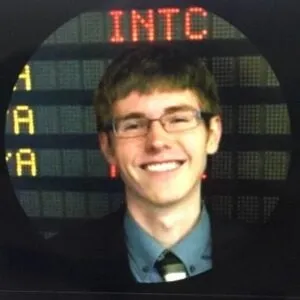In brief
- Numerai released Numerai Signals, allowing users to submit novel datasets and compare existing trading strategies.
- Numerai combines machine learning and crowdsourcing to try to beat the market.
- Numerai Signals is an attempt to find data that predicts the market—but that no one else knows about yet.
The hedge fund industry may soon be a thing of the past, if Numerai’s master plan comes to fruition.
Numerai, an open hedge fund using competitive data-science tournaments to crowdsource market-beating investment strategies, announced today the release of Numerai Signals, a way to index stock-trading signals and eliminate inefficiency in hedge fund operations.
And it's giving $50 million in crypto to users who submit data others have overlooked.
Introducing Numerai Signals: The world needs exactly one hedge fund — with every signal in the world.https://t.co/QPsszj4w7Q pic.twitter.com/EyDtUo9X8S
— Numerai (@numerai) October 12, 2020
In 2017, Numerai laid out a multi-step master plan. Its goal was to become the last hedge fund the world ever needs by aggregating all possible stock market data and crowdsourcing the most effective trading strategies, paying out contributors in its cryptocurrency, NMR, which they also use for staking.
Hedge funds try to provide a consistent return in good times or bad. Most use signals, or specific changes in conditions of a particular company or industry, to guide their investment decisions. The conventional wisdom is that success rides on being the best at uncovering new and more effective signals to follow.
However, Numerai points out in its Medium post that signals “discovered” by new hedge fund managers may actually have already been discovered and optimized long ago by competing firms.
In that case, a signal strategy that looks good on paper may actually be unprofitable to execute in real terms, as the new fund is only able to grab the crumbs of yield left behind after existing operations have taken their cut.
Machine learning may be the next frontier in developing strategies or signals that even the most experienced humans can’t conceive of, but the computing resources required to develop them is prohibitive for all but the most established funds already at the head of the pack.
Numerai Signals intends to tackle this in two ways.
First, the new system turns its focus beyond stock market data like price to earnings (PE) ratios or trading volume measurements, allowing users to submit small datasets that have predictive power for individual stocks or industries. For example, an electronics distributor could submit anonymized customer orders in the belief that they can predict downstream market effects.
Second, Numerai Signals will compare submitted strategies to find redundant trading signals, while also detecting the small (but non-redundant) differences that may produce greater returns.
Numerai will roll those differences into the fund’s own trading strategy, which pays out to contributing developers. If entirely new strategies are developed using either Numerai’s existing stock market data or datasets contributed by users, those will be rolled into the trading strategy as well.
Numerai sees itself as a way for intrepid young analysts to have access to the full range of market data and cutting edge machine learning bandwidth, allowing them to compete with the greatest minds currently designing hedge fund strategies.
If Numerai can achieve its goal, hedge funds around the world may see investors turning to the wisdom of the crowd to grow their wealth.

